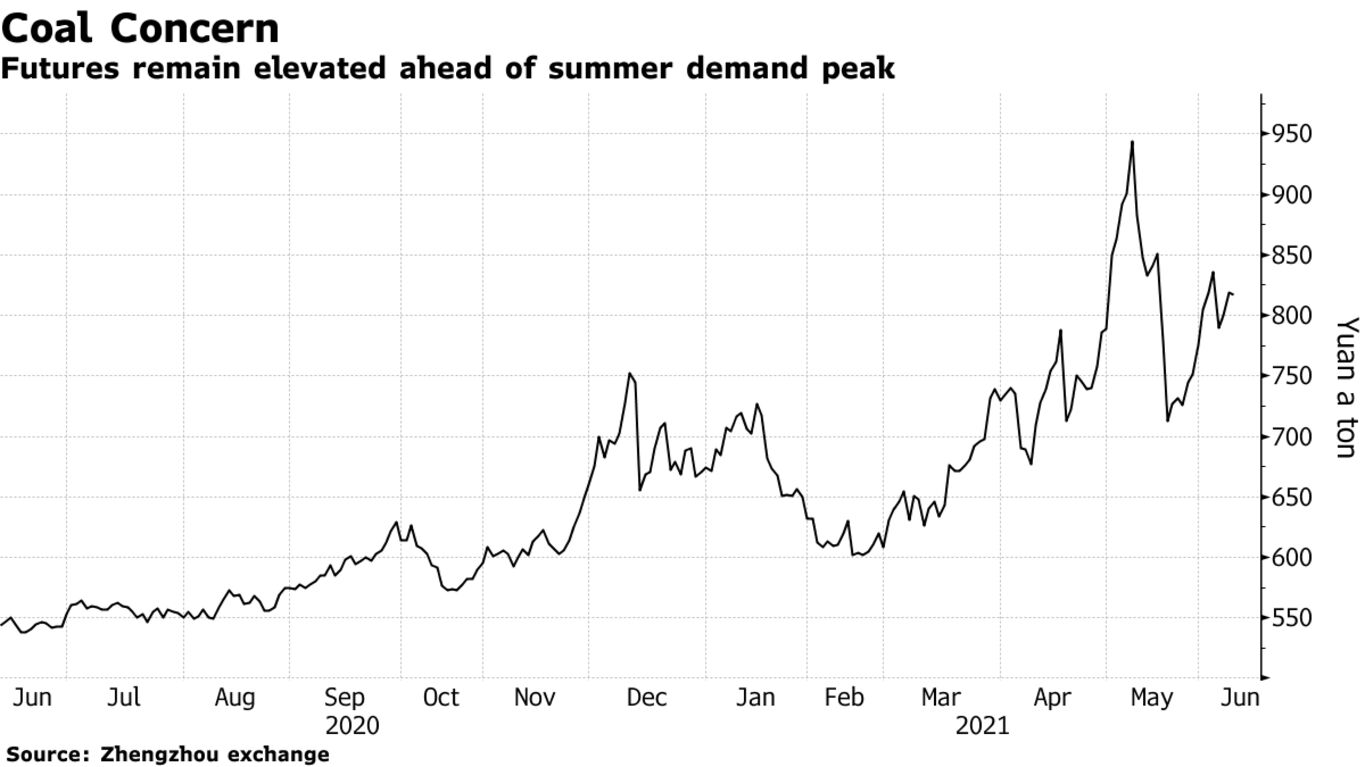China’s efforts to control raw materials costs could include price limits on its runaway coal market, underscoring the government’s tough stance on taming inflation. Beijing is considering imposing a cap on the price of thermal coal as it struggles to contain stubbornly high energy costs ahead of peak demand over the summer. The move would be the latest in a largely successful campaign across commodities that began in April to prevent inflationary pressures harming the economy.
No final decision has been made on whether to adopt price controls and the plans are subject to change, the people said. A fax to the National Development and Reform Commission, China’s top planning agency, didn’t get a response.
Thermal coal futures in Zhengzhou eased after news of the possible price cap, as did shares in the nation’s largest miner, China Shenhua Energy Co.
China produces and consumes mostly its own coal and the supply chain is dominated by state-owned firms. But the precedent of imposing price controls could still rattle other commodities markets that rely on imports and the private sector, given Beijing’s broader scrutiny of this year’s record-setting rallies in goods from copper to iron ore and corn.
Industrial commodities traded in China have dropped from all-time highs in recent weeks, after the surge in prices lifted producer inflation in May to its highest since 2008. In its latest effort to prevent consumers feeling the pinch, the NDRC plans to expand state stockpiles of pork, and toughen oversight of other markets for staple foods.
Peak Demand
The coal market has soared this year on a combination of factors, including a strong economic recovery from the pandemic, curbs on domestic production after a spate of fatal accidents, and import controls.
China has unsuccessfully tried price controls on coal before, according to local media. In December, the NDRC asked power companies to cap their buying price at 640 yuan a ton after the cost of the fuel surged, Futures Daily reported.
The risk now is that consumption continues to outstrip supply, just as cooling demand peaks over the summer and regulators threaten to shutter more mines to prevent accidents as the nation prepares to celebrate the 100th anniversary of the founding of the Communist Party next month.
In recent years, China has tried to keep prices in a so-called green zone of 500 to 570 yuan a ton, with intervention of some kind all but assured if prices breach 600 yuan. But the market has run so far ahead of these levels that a firmer, albeit higher, cap may now be deemed necessary.
Also fresh in regulators’ minds is the power crisis of last winter, when unusually strong industrial production and freezing weather created shortages of coal and gas, throwing energy markets into chaos.

